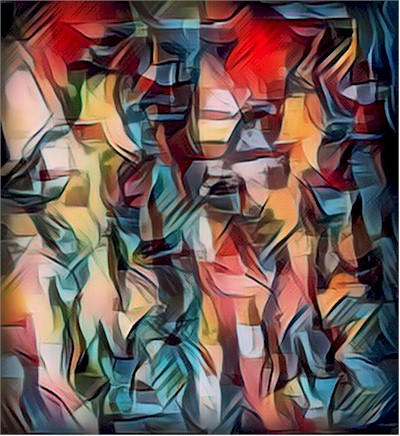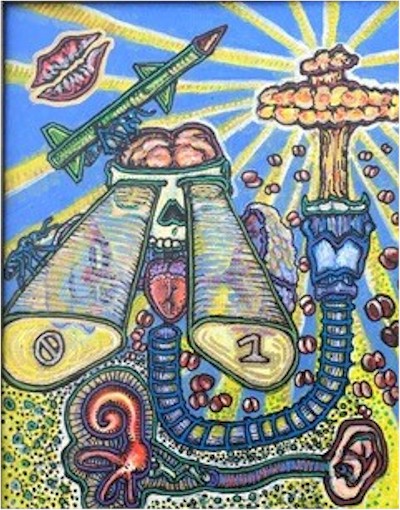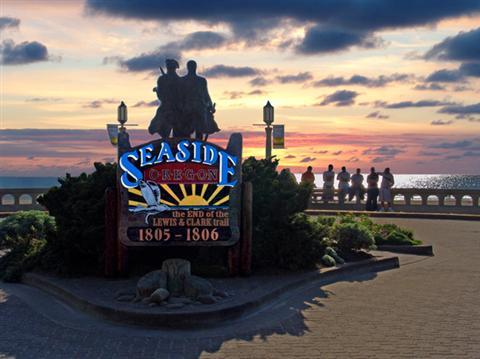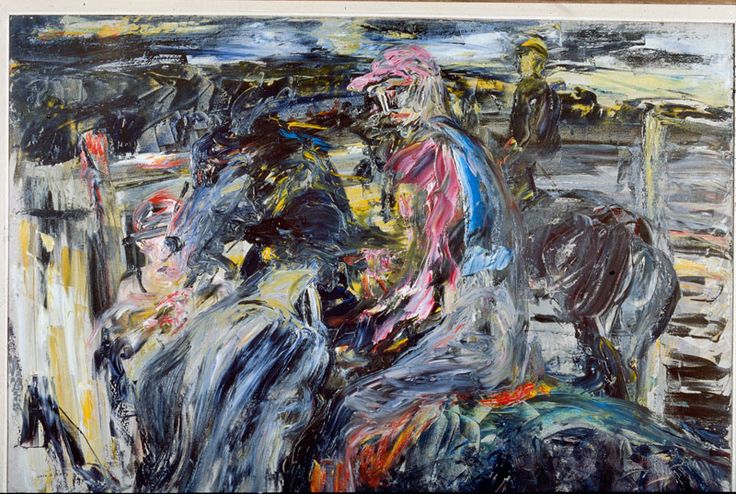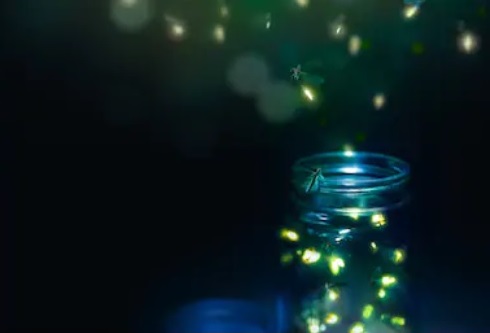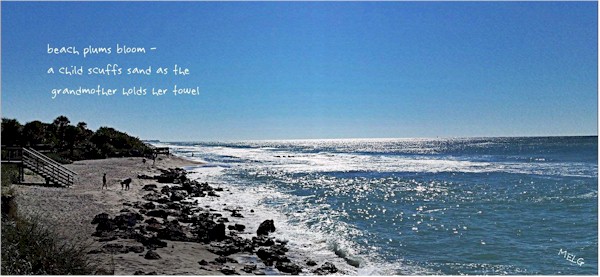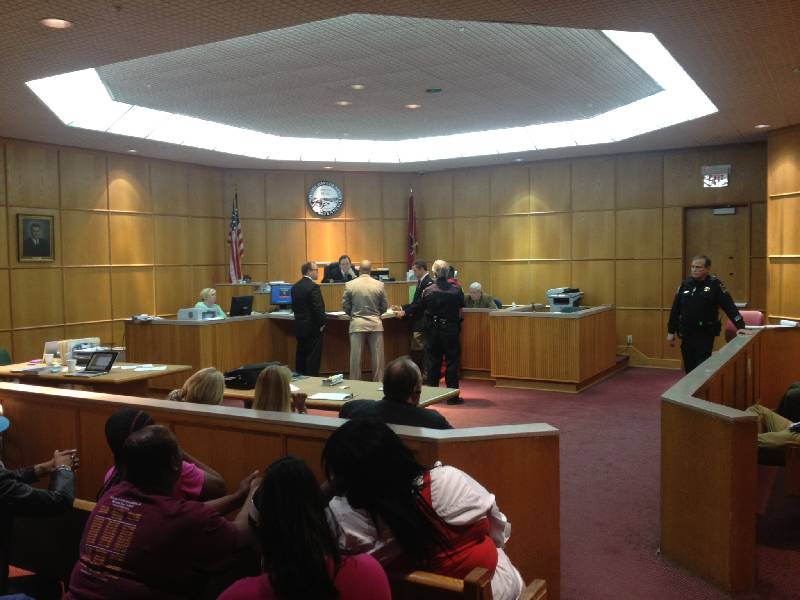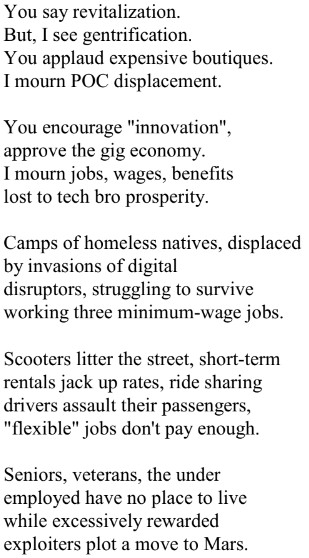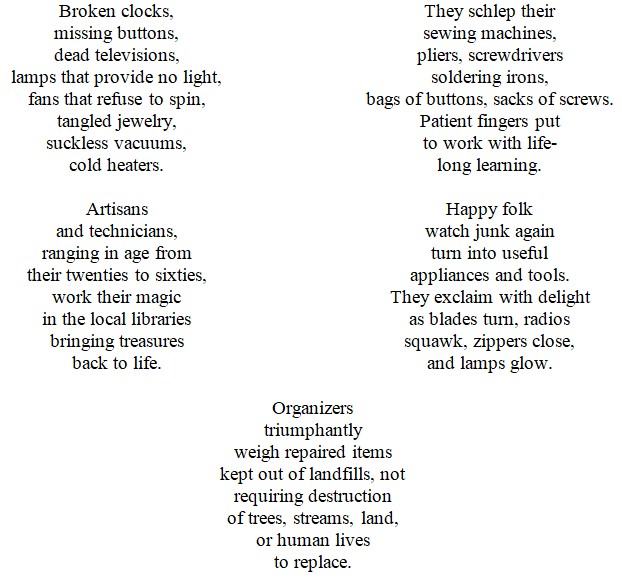
|
Welcome to the Fall 2019 issue of the Portland Metrozine — a growing online community of writers, artists, and deep thinkers who, from around the world, share their ever-evolving literary work, visual art, and positive community vision. Our beginnings… This historic “Metrozine” debuted in 1991 as Poor Joe’s Guide, a print publication designed, developed, published, and distributed by a tightly knit community of artists and writers. The Guide rapidly evolved into the literary journal, Portland Metrozine. In 2019, original publisher, Joseph Corrado, and editor, Basha Krasnoff, resumed publication as an online literary journal. In keeping with its legacy and with renewed vigor, the Metrozine eagerly anticipates the future with hope and continues to champion development and cooperation within the creative community with deep respect for expression through diverse lenses. About this issue… The Metrozine offers a safe space for creatives in our global community to share their unique expressions of life experience and their developing understanding of what it means to be fully and freely alive in this world. In this Fall 2019 issue, you will find stories, poems, memories, and images about times of uncertainty, anxiety, and renewal. If you read on, you will meet women and men who graciously share their unique points of view. Perhaps you will learn and gain strength from their experiences. Perhaps you will just revel in their creative expression. Join us as we continue to weave the threads of our lives in fearless pursuit of wholeness and truth. Cover Artwork by Jim Zola (Untitled). The cover art for the Fall 2019 issue of Portland Metrozine was created by the poet and photographer, Jim Zola. For this work, he used a combination of collage and photographic image manipulation to play with shadows and shapes. He describes his process as “taking ordinary objects and distorting them.” Just as Josef Koudelka, the photographer he admires most, left his photographs untitled, Zola identifies his photographs with little more than a number, date and perhaps a place. In this way, he leaves it to the viewer “to come up with the story behind the photo.” We welcome submissions from creative writers, artists, activists, and deep thinkers around the world. The Metrozine community encourages the avant-garde, the experimental, and the arcane in fiction, non-fiction, and poetry. We also welcome submissions of visual artwork, including drawings, photographs, and facsimiles of paintings. Buoyed by the thriving literary community of Portland, Oregon, we reach out to the global community to inspire, encourage and broadcast creative expression. Wherever you are on planet Earth, we welcome you to share your vision, your voice, and your point of view!
|
 A Forest of My Dreams by The Forests Edge Photography - Diane Sandoval. |
||||||||||||||||||||||||||||||||||||||||||||||||||||||||||||||||||||||||||||||||||||||||||||||||||||||||||||||||||||||||||||||||||||||||||||
| Fiction: Play | ||||||||||||||||||||||||||||||||||||||||||||||||||||||||||||||||||||||||||||||||||||||||||||||||||||||||||||||||||||||||||||||||||||||||||||
Funeral Strains By Gary Beck
|
||||||||||||||||||||||||||||||||||||||||||||||||||||||||||||||||||||||||||||||||||||||||||||||||||||||||||||||||||||||||||||||||||||||||||||
|
||||||||||||||||||||||||||||||||||||||||||||||||||||||||||||||||||||||||||||||||||||||||||||||||||||||||||||||||||||||||||||||||||||||||||||
 |
||||||||||||||||||||||||||||||||||||||||||||||||||||||||||||||||||||||||||||||||||||||||||||||||||||||||||||||||||||||||||||||||||||||||||||
| Poetry: Haiga | ||||||||||||||||||||||||||||||||||||||||||||||||||||||||||||||||||||||||||||||||||||||||||||||||||||||||||||||||||||||||||||||||||||||||||||
Brave Women Strong and True By Mary Ellen Gambutti
|
||||||||||||||||||||||||||||||||||||||||||||||||||||||||||||||||||||||||||||||||||||||||||||||||||||||||||||||||||||||||||||||||||||||||||||
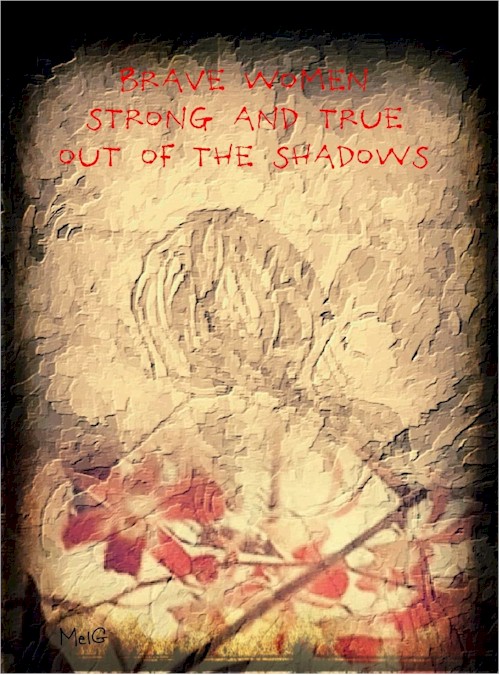 |
||||||||||||||||||||||||||||||||||||||||||||||||||||||||||||||||||||||||||||||||||||||||||||||||||||||||||||||||||||||||||||||||||||||||||||
 |
||||||||||||||||||||||||||||||||||||||||||||||||||||||||||||||||||||||||||||||||||||||||||||||||||||||||||||||||||||||||||||||||||||||||||||
| Flash Fiction | ||||||||||||||||||||||||||||||||||||||||||||||||||||||||||||||||||||||||||||||||||||||||||||||||||||||||||||||||||||||||||||||||||||||||||||
1957 By DC Diamondopolous Welcome to The Shady Lady, a queer bar in San Pedro, California, across the railroad tracks, near the docks, in a back alley off Harbor Street. It's a raunchy hole in the wall dive where dykes and drag queens hang. So, you didn’t think they mixed? Well, think again Daddy-O. Over there, slouched against the juke box, listening to Gogi Grant croon “The Wayward Wind,” is Stormy, a big broad-shouldered butch who flirts with anyone who has tits and a pussy. Cigarette clamped to the side of her pouty James Dean lips, she can talk, play pool, and switchblade her way out of a fight, and the L&M never moves a lick. Her hair is greased with pomade and combed up on the sides with a pompadour rising like a tidal wave from her forehead. On the outside Stormy appears cool, but on the inside her stomach is doing wheelies. You see, a bust is about to happen, and she knows it. Stormy yanks the jukebox plug from the wall. “It’s the fuzz!” she shouts. The teeny-weeny dance floor empties. The pool table is abandoned. Everyone scatters to small wooden tables and bar stools. Stormy struts to the center of the room. “If the man rounds us up, fight back, you dig?”
Across the room, under the exit sign, meet VaVoom, a six-foot-five drag queen in stiletto heels raising her height to a near sky-scraping altitude. She wears a floral skirt with mesh petticoats, a black low-cut blouse, and a choker of fake pearls just below her Adams apple. Her short, Italian-styled wig is from Max Factor of Hollywood, and her layers of false eyelashes from Orbach’s. She holds a cue stick like a ball bat. No way is VaVoom going to let Johnny Law give her the royal shaft. Blue and maroon vice cars surround the seedy bar. Parked outside the lonely hideaway, the Black Mariah waits to haul off the sickos. A gust of fish and gasoline swooshes in through the entrance. It’s another night in the city where the heat gets their kicks hassling stompers, femmes, and swishes. “Okay motherfuckers let’s go. The freak show’s over and the paddy’s outside,” a cop shouts. “Didn’t you get your pay-off?” a queen with a falsetto voice asks. “Shut-up.” VaVoom hits the breakers. Blackout! Crash! Boom! Bam! Pop! The Shady Lady turns into a blind noise of sticks swooshing, pool balls cracking, and feet scuffling. A flashlight cuts across the ceiling like a searchlight at a movie premiere, but this ain’t no movie. This is where dreams turn to pulp. A fist slams Stormy in the back. “Ohh,” she moans. A stick strikes a skull. A scream freeze-frames the moment. It’s our heroine VaVoom, holding the bloody cue. She shoves open the back door, swings the pole across the face of the cop guarding the exit and knocks him to the ground. “Ahh,” he cries and covers his broken nose. VaVoom grabs Stormy. “Follow me.” “Where to?” Stormy asks. “Hush-hush,” VaVoom says. “It’s very confidential.” She pulls off her heels and sprints down the back street like Elroy “Crazylegs" Hirsch. Stormy grips her cigarette between thumb and forefinger and flicks it away. She bolts after VaVoom. Under a full moon, they run past cargo crates and pallets. The stink of diesel and garbage hangs in the air. The two escapees turn the corner at a cannery and dart alongside the Port of Los Angeles. Lights from Terminal Island flicker across the harbor. To the south, oil derricks and wells pump in an urban field of dinosaur spiders in 3-D. They both know what happens if caught—booked, fingerprinted, their names listed in the Daily Breeze under perverts. Lives ruined. Stormy catches up to the towering drag queen. “Where the hell are we going?” “To my boat,” she says in a high-pitched breathy pant. “It’s fabulous.” “You have a boat?” “I dock in Long Beach,” the transvestite says, gulping air. Her wig slips. She tugs it forward with one hand while dangling the straps of her heels with the other. “And sail here.” She hurries toward the wharf. Stormy charges after. VaVoom runs down the pier to a small wooden cabin cruiser and unties the rope. She lifts her skirt and long legs over the edge and steps into the boat. It rocks. Water ripples and gurgles. She opens the door to the cabin and disappears inside. Stormy climbs into the boat. The cruiser laps from side to side. The door creaks back and forth. “C’mon. Let’s split.” VaVoom’s voice dips an octave. She fires up the engine. Stormy swings open the door and steps inside. The crossdresser sits at the helm with her back to her. The queen’s wig and stilettos are on the table. She runs a large hand over her crewcut, then peels off the blanket of eyelashes. The big butch sits beside her partner in crime and lights a cigarette. VaVoom powers the craft away from the dock and heads toward Long Beach. “Thanks,” Stormy says around the filter of her L&M. VaVoom wipes her lipstick off with a tissue. She turns. Stormy’s cigarette falls to her lap. “Mr. Hazzelrigg!” she says, staring into the face of her tenth-grade math teacher. “It’s good to see you again, Mary Louise.” |
||||||||||||||||||||||||||||||||||||||||||||||||||||||||||||||||||||||||||||||||||||||||||||||||||||||||||||||||||||||||||||||||||||||||||||
 |
||||||||||||||||||||||||||||||||||||||||||||||||||||||||||||||||||||||||||||||||||||||||||||||||||||||||||||||||||||||||||||||||||||||||||||
| Poetry | ||||||||||||||||||||||||||||||||||||||||||||||||||||||||||||||||||||||||||||||||||||||||||||||||||||||||||||||||||||||||||||||||||||||||||||
Five Poems By Rose Aiello Morales Travelling By Rose Aiello Morales Crossing parallels Until here is not a construct, Find another definition That throws us well beyond the shadows
This is not a Lullaby By Rose Aiello Morales I’ve kept your communications Is the weather to your liking? Charon cannot decide whether you’re East or West, And how is your cooking? Is your oven on? Forever.
Synchronicity By Rose Aiello Morales A dream thought into being Watersheds with oily iridescence, Worked through pane Its energy had flowed through firewalls,
You Can’t Know What You Don’t Know By Rose Aiello Morales I am 16,
That Vintage Summer (Chlorine and Wine) By Rose Aiello Morales Summer is a shark in a wine barrel No delicate hints of grass and berries, The non-subtlety of chlorine Children will remember that taste of freedom, |
||||||||||||||||||||||||||||||||||||||||||||||||||||||||||||||||||||||||||||||||||||||||||||||||||||||||||||||||||||||||||||||||||||||||||||
 |
||||||||||||||||||||||||||||||||||||||||||||||||||||||||||||||||||||||||||||||||||||||||||||||||||||||||||||||||||||||||||||||||||||||||||||
| Flash Non-Fiction | ||||||||||||||||||||||||||||||||||||||||||||||||||||||||||||||||||||||||||||||||||||||||||||||||||||||||||||||||||||||||||||||||||||||||||||
How Old? By Zaji Cox I am in Seaside, on the sidewalk, circling the statue declaring the end of the journey for those two explorers I study almost obsessively in my homeschooling—Lewis and Clark—with my dad. We’re making our way to the steps that lead down into the sand where I can feel it fold warmly over my feet before the shock of the cold Pacific seawater. But first we have to make it through the throng of cars and people, past the moms and dads and children lathered in sunscreen carrying their beach towels and flip flops, past the couples with their digital cameras by the railing, past the group lounging by the statue and Seaside Oregon sign in their multicolored swim trunks watching us, dreadlocks bobbing when they nod and say “That’s a nice girl you got there” to my dad. My dad has to then put his big protective arms around my shoulders and say “That’s my daughter” as we hurry away; we have to laugh, very flustered and a little weirded out as we round the corner. And then I have to think, How old do I look? and consider maybe my height or the clothes I’m wearing or the ocean-ready skin I’m showing before getting to the sandy concrete steps so I can be a kid again, which is funny because I don’t know when I switched out of being a kid. Then, and only then, can I finally feel the warm, sunbaked sand fold over my feet and between my toes, burying itself under itself like the memory of the group in the throng of the beach crowd. I am in the Lloyd Center mall and need to wait outside a Radio Shack because of the Christmastime It’s a secret barring my entrance. I need to wait for however long and try not to get bored or maybe overwhelmed in the lights-people-noise of the mall, and so just lean against the wall to people-watch. I’ll be sure not to meet anyone’s eyes, no matter how close they get. Like this tall guy with a crooked baseball cap. Because if we see each other, the next thing he’ll do after sipping from his half-full McDonald’s cup is talk to me— Well, there I go. I was too nervous, and I did. That was my fault. First, I’ll have to laugh when he asks if I got in trouble and had to wait outside because of it. Then, because I hardly understand him the first time, I’ll need to ask him to repeat himself when he asks, “So how old is you?” But now my face is burning, and my heart is racing, so I need to mutter something and try to be uninteresting so he’ll go away and stop saying things I can’t understand in the din and the way he speaks. I definitely need to frown when he asks, “Is you eighteen?” because I am clearly wearing a Jonas Brothers tee shirt and am a kid (aren’t I?). But then I need to consider my height, which I can’t help, and perhaps the fact that I am smiling too much, which seems like an encouragement but which I can’t help either because it’s a nervous smile. I don’t actually know what I need to do now. I turn pleading eyes to the strangers around us for guidance. They breeze past, some with little more than a glance. Like they don’t want to touch us. Oh, there—I’m almost done—before leaving I only have to go back to being quiet again, this time a relieved quiet. Because now, I just have to stay a little behind while my mom uses her My daughter words and energy to shove the guy with the McDonald’s cup and baseball cap away, then watch his back as he saunters and tugs at his sagging pants while he tries to laugh. And I need to think about more important things, like what secrets are concealed in that Radio Shack bag, rather than the phantom sense of shame, because I have no idea where it came from and is already gone with the guy in the crowd. |
||||||||||||||||||||||||||||||||||||||||||||||||||||||||||||||||||||||||||||||||||||||||||||||||||||||||||||||||||||||||||||||||||||||||||||
 |
||||||||||||||||||||||||||||||||||||||||||||||||||||||||||||||||||||||||||||||||||||||||||||||||||||||||||||||||||||||||||||||||||||||||||||
| Fiction | ||||||||||||||||||||||||||||||||||||||||||||||||||||||||||||||||||||||||||||||||||||||||||||||||||||||||||||||||||||||||||||||||||||||||||||
Ylem By Mehreen Ahmed
YLEM: noun: astronomy (in the Big Bang theory), the primordial matter of the universe, originally conceived as composed of neutrons at high temperature and density. Her name was Andromeda. She swam on satin water. Lapped up in the silk, her mind was restive. Her thoughts were agile, but discrete and non-linear. Absorbed in her musings, her dreams were clear. She swam in them, out of her depths, just as well, they kept coming back. Braided in and out, oscillating, and edgy, they chased her almost, inconsequentially. These half-formed thoughts, writ on water’s hem. In the aftermath of the war, random bodies floated. Down by the stream which eucalyptus skin coated. Covered by stringy barks, pale faces were spotted. The enemy gloated; bodies were quite bloated. Marked with agony, of the swollen bodies, some eyes shut, peculiarly, some were still open. Her focus turned in a moment. She sat next to her mother. They chatted in an oval room, mother and daughter. Her mother looked fresh and young, way back, a maiden. Andromeda was born much later. She asked.”Where have you been all this time?” “I had been out to a conference,” her mother replied. “How did it all go?” Her mother answered, “Very good. All was good.” “Ah, but I missed you. I really did.” Her mother smiled. Father entered the room. His handsome face was radiant, the atmosphere lightened. Mother rose to offer him her chair. But father took a stool, sturdy and bare. Father died nearly a decade, Andromeda thought, in retrospect. The room darkened. Over the water, bold and low, fluttered a lorikeet, a flying rainbow. It seemed it was going to gouge her eyes. But the sprightly bird frolicked, passed her elbow. The neighbour, who like a father, died indeed. She went to his funeral with a wreath. Then he dropped by to meet her that night, this reverie, held her cheat tight. When she asked him, “Have you seen God?” “No,” he replied. This, a silent place. Where am I? This present moment. Vast, and void, this light space, offers no air. Did I die? Am I really dead?” “No, God then?” she asked. “Where is He? He hasn’t come to meet me, yet,” said the respondent. “Do you miss us?” she had asked. Tears in her dreams, she felt surreal. “Yes, I miss your aunty,” he answered, then he vaporised like a collapsed star. A fusion of elements, hydrogen and helium, led to the birth of a cosmic star. The helium ran out. Star collapsed. He collapsed. She saw the neighbour, driving his car; through the suburbs of his choice, with his wife, whom he referred to, as aunty. The chemicals conferred. An accident occurred. He died. Of her dreams. Finite lives made of infinite gasses. Of the cosmos, of the elements, life perished. Andromeda contemplated, the stuff of life. This precious breath, did it not live outside the orbit of death? Helium, and hydrogen, oxygen, iron and zinc. Mountain passes were rugged. She walked through the terrain. A storm picked up, she looked for a spot. She found a cave. In the dark shelter, she sat amidst litter. A lightening fell outside. That creepy light, opened her mind to shadows below. She was not alone; somebody there. In a flash, the shadow disappeared. She was out of her wits. She tried to sleep. Just when she saw some cave paintings. On the wall, they looked ancient. And they were, ancient. In a bit, she saw a little boy. A broken charcoal in his hand, he sketched stirring stories, like the fall of Troy. He lit a small fire. Lights emanating from the fire helped, this sentient boy, to see better. He drew stick figures of many shapes and sizes: tall, short, men, women and children. It was almost dark, on the rugged wall, shape of the boy silhouetted in the moonlight. Floodlights in the dark cave, paintings of tall tales, some washed up partly in the rain. Segment of a story, like this painting of an alley, people walked through with missing hands or hair. Many even defaced, in the falling rain. Colours ran down the leaves of trees, and turned them into lighter shades of green. Pure paintings filled the dingy walls, and onto the floor, some scribbles crawled. Gallows hung without much peruse. Kings devised a horrendous ruse. Spilled blood into the soil to infuse. Children sacrificed, for fertility of the soils, far better use. Heavy harvest at stake, people kept quiet, no one to refuse. Little boys to be taken, gods to be appeased. Telltale signs of ominous days. The King’s men marched, and dragged the boy away. Off to the gallows. Off with his head. The artist, little boy, broken into shreds. In white loincloth, wrapped around his waist, the boy’s gaping horror, clouded his face. His small hands trembled. She looked through a portal. Tears, and cries of the innocent sacrifice. No one took pity at the bloody altar. Wounds remained unaltered. Cosmic parameter, a stern factor. Flashbacks played wistful memories; she lay on a beach a mere bystander. A silent witness to the many silken dreams, lovers entwined a beautiful beginning. Sunken sands, in waxed moonlight. Of the mandala, an ephemera, imperfect finale of the drama; done and redone until time had spoken, given up on the beach, a part of resurrection. In the hours all became sand, quintessentially minuscule, and indestructible. In the heart of it, each wave flow, atom of H2O. Over those swelling waves, she boarded a pirate ship. And saw a thousand vessels, a war imminent. On the horizon, a ship appeared like a phantom. A skeleton of a ship, spectacularly luminous, shone in the lantern. There was a gunshot fire. She was hit. Oh! It hurt! She was hurt. She felt the pain of the gunshot. But she lived. She saw ships pass by, while her own cruised towards the nearest beach; sea-gulls, scoured the skies. Sands, the most wondrous, where monks built palaces, and played Kings and Queens. Of a greater imagination, ruled by them, the three Moirae sisters. Monks made mandalas, painstakingly intricate, human history and destiny pleached. Giant pyramids erected with care, and the Taj-Mahal, The great Ozymandias. The King of Kings, his life-sized statue pitched on the beach. Immortalized in the scroll, the statue awash, the mandala destroyed, flattened to the ground. The hollow sand; into the sand, she buried her legs deep to the waist. A hybrid formed of part sand and part flesh. At its best, a mermaid tail; she lay half covered under the clay. High on her imagination, her dreams displayed, decrepit old castles’, windows’ deep splays. Such was the beach, on the edge of which, the tireless seas creased. Where romantics rode unicorns, nomads wild horses, Homer, churned verses, now deplete. Time’s most valued, gift offerings to gods, watched this once how their altars burnt? Stars burnt out. The sun burnt. This gleaming altar made out of gold; plush gold clouds, nestled the thrones. A toy boat marooned, on gold-plaited sheet, uncertain of directions, an aluminium plate; hot liquid gold, poured into the mould, this sea basin, replete to the brim. Gods’ own altar, never to erode, shimmering and sure, until pilgrims came home. Andromeda swam, a big hand bagged a snake. There was a man though towards dawn. He told her this, expressed a wish that he wanted to leave, to be born again. “Born again?” she asked. “Yes, that is possible,” he said. “Impossible. Because in order for you to remain what you’re, you need genes from both parents.” “It is possible, though,” the man said. “What about your wife?” “What about her?” “Does she have a say in any of this?” she asked. “Probably not.” The wife loomed. But she didn’t seem to mind. She heard his desire. So, she did not hinder. On a fevered night, in one short month, the man left for a forest, of illuminated fireflies. The blue forest sparkled, a pathway was strewn, with sprinklings of fire ubiquitously flown. Around tall trees and slim short bushes, he walked alone through a lucid forest. A forest transformed into a conduit, this hermit of a man, roamed its bended unit. Reincarnation on his mind, soul in another body, stars in the sky, twinkled a smile. Here she was, with this lady in white, appeared in her dream, that’s how it transpired. Some syringes in her hand, wet lips in betel juices, glowing with health, she stood at her bed. Holding them out, those long syringes, she knocked into her some worldly senses. “Your mother’s injections.” “What?” The lady vanished. Her mother had run out of insulin and was on the brink of a disaster. The lady had come to tell her this, to ask her if, she could get her some insulin. Andromeda’s grandmother, this dear lady, kind and Godly, rests now sadly. The silken waters blanketed her skin. Her swimming undeterred, held her by a spell. This undying chemical, once produced within her organ, the failing pancreas, now injected for survival. “I’ve come to say goodbye,” it seemed he taunted. She looked at her brother, then understood his intent. Upon waking, she found to be true, that this saintly priest had passed away too. This dreamland, not entirely unreal, of sense perceptions, a world parallel. Sights sounds and smell, shaped up to be real, pain compounded a curious blend. Disjointed thoughts came to pass. Mesmerising chimera seeped. Tantalising glimpse, of enormous replica, as shaded entity. Who’s to know, what’s with the truth, this wakeful life of actuality? A dream within a dream; doll within a doll, within a doll, the picture awry, always off limit. That cave painting in the rain, defaced people walked up the streets, the greens washed off. Waters dribbled over, of a partial reality, conceived by this artist in utter antipathy. Such fragmented cognisance, manifold layered dream, alluded to allegory of the cave theme. Half a dream, a broken thought, the unfinished story, manifested to Plato’s shadow reality. This palpable existence, transcended truth, hinged on puppeteers beyond familiar scope. Answered with certitude, flung within the stars, lay a larger image, the fate of the universe. The long and short of it, dismantle the stars, dismantle Leda, a sense of foreboding descended Andromeda. For, “It is the stars, The stars alone, that govern our condition,” Shakespeare foretold. |
||||||||||||||||||||||||||||||||||||||||||||||||||||||||||||||||||||||||||||||||||||||||||||||||||||||||||||||||||||||||||||||||||||||||||||
 |
||||||||||||||||||||||||||||||||||||||||||||||||||||||||||||||||||||||||||||||||||||||||||||||||||||||||||||||||||||||||||||||||||||||||||||
| Poetry | ||||||||||||||||||||||||||||||||||||||||||||||||||||||||||||||||||||||||||||||||||||||||||||||||||||||||||||||||||||||||||||||||||||||||||||
Suite of Poems By Diarmuid ó Maolalai On Keele St near Wilson By Diarmuid ó Maolalai lonesome as a shoe on the pavement
Jack Yeats By Diarmuid ó Maolalai the energy -
Long distance By Diarmuid ó Maolalai it’s strange.
Picturesque By Diarmuid ó Maolalai jerking to a stop
They ask for experiments By Diarmuid ó Maolalai as if this were a field |
||||||||||||||||||||||||||||||||||||||||||||||||||||||||||||||||||||||||||||||||||||||||||||||||||||||||||||||||||||||||||||||||||||||||||||
 |
||||||||||||||||||||||||||||||||||||||||||||||||||||||||||||||||||||||||||||||||||||||||||||||||||||||||||||||||||||||||||||||||||||||||||||
| Flash Fiction | ||||||||||||||||||||||||||||||||||||||||||||||||||||||||||||||||||||||||||||||||||||||||||||||||||||||||||||||||||||||||||||||||||||||||||||
Fireflies By Dorian J. Sinnott
“Did you remember them?” My brother asks me the same question every time the sun sets. I sit in silence, watching the colors fade out into blackness on the horizon. Waiting. Waiting for any trace of light—of life—to break the veil. “Of course...” I’d kept a jar of fireflies beside my bed, pretending they were fairies. I did so for years. The dark and I had never been friends—much less acquaintances. Yet, the fireflies kept the monsters at bay. Did you remember? We searched the fields, the first summer we met, under the milk light of the moon. It was as if we were trapped in the cosmos; a galactic veil. Beneath the blanket of night, they glistened. Each of their tiny bodies twinkling, like earthly stars. You were the one that convinced me of their magic. Told me they would make our dreams come true. So we caught them in our nets—plucking stardust from the skies—and sealed them in our jars. For four years, I’d lived in the fantasy. The heart of a child beating strong in my chest. Those glittery fairies we brought home every summer kept us young. Young on magic. Young on belief. Young on love. I used to smile back then. The light of the lightning bugs reflecting in our eyes. There was nothing but hope, admiration. Magic. I’d stay up late, counting each and every glimmer from my jar. Like tiny heartbeats. Mimicking the rise and fall of your chest as you’d sleep—each breath. How I miss their sparkle. Their beauty. Their life. I’d have traded every last light for you. To keep your spirit ignited. To watch the fireflies collect in your hair, setting fire to autumn leaves. You’d always smelled of harvest, but deep within, you held a winter heart. One too cold for the rays. My soul was birthed in summer: in heat, in hearts, in hope. But the hope died like the lights on the crest of autumn’s eve. Burned out like a dying star. When there was nothing left behind to love, all I clung to were the faint flickers. Silently weeping into the night. Into soft pillows that still smelled of fresh, damp leaves. Of you. But just like the cool breeze swept away the summer sun, your bags were already packed and loaded. Heading out for another soul to break. Taking the light of the fireflies with you. Until they, too, withered and died. Suffocated. The lid had been too tight. I’d sit in silence, looking out at the black skies. No moon, no stars. Just an endless void of what has become my heart. Bleak, unmoving. My brother watches with intent eyes, hopeful that the night returns the solitude of simpler times. Returns the smile long since packed in your bags. I remove the backpack from my shoulder and carefully draw out a jar. Deep within, there’s a light. But it’s dim. So, so very dim. The tears prick at my eyes again at the soft glow. The beauty of love. Of life. Of hope. It’s time to grow up. The fairies died the day you left. Their tiny wings withered and they lost their magic. Lost it to the cruelty of lies and deceit. All that was left behind were their delicate corpses, taking the form of lightning bugs. My brother touches my shoulder, offering strength. The final assurance to release. To finally let go. I still feel their warmth, their gentle light. How it danced across your pale skin and caught in your deep brown eyes. I smell the harvest. The soft dewdrops of morning that painted your lips. But beyond the warmth and glow, I feel freedom. Acceptance. I slowly remove the lid of the jar, watching as the fireflies collect and head for the skies. Turning loose the fairies we made promises on. Those glittering wonders. As they faded out into the night, I swear the stars began to shine. And for the first time in so long, I felt a smile returning. Gentle. Hopeful. Like magic. The lights burned brighter when they learned to let go. |
||||||||||||||||||||||||||||||||||||||||||||||||||||||||||||||||||||||||||||||||||||||||||||||||||||||||||||||||||||||||||||||||||||||||||||
 |
||||||||||||||||||||||||||||||||||||||||||||||||||||||||||||||||||||||||||||||||||||||||||||||||||||||||||||||||||||||||||||||||||||||||||||
| Epic Poem | ||||||||||||||||||||||||||||||||||||||||||||||||||||||||||||||||||||||||||||||||||||||||||||||||||||||||||||||||||||||||||||||||||||||||||||
Go Be By Gerald Marchewka
|
||||||||||||||||||||||||||||||||||||||||||||||||||||||||||||||||||||||||||||||||||||||||||||||||||||||||||||||||||||||||||||||||||||||||||||
 |
||||||||||||||||||||||||||||||||||||||||||||||||||||||||||||||||||||||||||||||||||||||||||||||||||||||||||||||||||||||||||||||||||||||||||||
| Experimental Poetry | ||||||||||||||||||||||||||||||||||||||||||||||||||||||||||||||||||||||||||||||||||||||||||||||||||||||||||||||||||||||||||||||||||||||||||||
Feeling Alive Again By Mary Ellen Gambutti I learn again to be alive in my senses, this fourth year of disability. I hear March wind—no longer icy—the day is sunny. I read a story about drifting on the Mississippi, as I listen to the raft slosh against the shoreline. But it’s the waves on the beach in my earplugs, the soundtrack of the OhmWriter app in which I journal. Waves more intense, I turn down the volume to hear ambient chimes of Steve Halpern in the living room resonate with remnants of soft pooling sound. In the kitchen, Phil joins with clatter of hot cocoa-making. Awareness of the present—all we have.
|
||||||||||||||||||||||||||||||||||||||||||||||||||||||||||||||||||||||||||||||||||||||||||||||||||||||||||||||||||||||||||||||||||||||||||||
 |
||||||||||||||||||||||||||||||||||||||||||||||||||||||||||||||||||||||||||||||||||||||||||||||||||||||||||||||||||||||||||||||||||||||||||||
| Fiction | ||||||||||||||||||||||||||||||||||||||||||||||||||||||||||||||||||||||||||||||||||||||||||||||||||||||||||||||||||||||||||||||||||||||||||||
Discerning Friends By Thomas Elson Bierley knew … Monday morning at the tail end of the worst storm of 1982, and Daniel J. Bierley III, sole surviving family member of a third-generation law firm founded by his grandfather in 1913, rushed past the usual flock of courthouse waddlers, ran up the two flights, through the open double oak doors, and into the courtroom – the docket that morning was set-aside for criminal pleas. There were no windows in the courtroom. Retrofitted and exposed heating and air conditioning duct work roamed across the twenty-foot high ceiling. In one corner was the long-unused, Franklin stove Bierley’s grandfather had installed while still at Fairmount College. Chandelier lights cast shadows onto the wooden floors. Bierley knew the facts of the first case. A husband who worked out of town – on the eastern side of the state – at home on alternate weekends. He knew the defendant’s wife was planning to leave him. He knew about their Sunday dinner out of town. The gunshot wounds in the back of her head. Four spent .22 casings on the ground. The recovered pistol. He also knew the unseen presence in the courtroom – the murdered woman. She had been, among other things, his grandfather’s paralegal. Bierley knew the men soon to be on the working side of the courtroom. The assistant state Attorney-General, Birch Weltz in his tailored dark gray suit – a heavy block of a man set atop two thin legs – skilled and comfortable with his authority. The County Attorney, Bill Narth, a modest man with much to be modest about – as a four-term county attorney in a small county, he was considered, in the words of a former county clerk, “a failure in his profession.” The young defense attorney, Garry Mattox, in his limp polyester blazer, who had proven himself at the preliminary hearing a few weeks earlier. The newly elected High Sheriff, Dennis Hatzenbueller, Bierley’s next door neighbor since the second grade. And the Honorable Paul Williams, recently appointed district court judge. All but one born in Ninnescah county, all but one attended the same grade school or law school, and all married in one of the churches within six blocks of the courthouse. Bierley even knew the private phone number of the state Attorney General, Kyle Snell. Friends since law school, when, in the days before photo I.D., they slugged down bourbon and coke on Friday nights at the O-Club then made fools of themselves in the backrooms near Ft. Riley. As soon as the six-foot four-inch bailiff entered, the courtroom grew quiet. █████████ It’s set in stone, Danny. It’s the common law of Ninnescah county.” His grandfather would pause, raise his white eyebrows as if addressing a jury, “It’s not just who you know, but how long you’ve known ‘em, and whether your great-grandfathers came here from the same country. Better still, on the same damn ship.” He would look at the young boy, click his dentures, and continue. “And, Danny, it’s your duty to preserve all this.” “But how, granddad?” “Well, everyone says the world is changing, but it ain’t,” he continued with his rare colloquial lapse. “Human nature don’t change, so you’ll figure a way.” “Why?” “Because you have to.” He placed his hand on the boy’s shoulder. “Protect your heritage, Danny. It’s all you got. Your father sure as hell couldn’t do it – and you, my boy, are the last of the line.” Bierley was raised in a house that stood as a shrine to his family’s history. Maple tables with inlaid marble in the family since the seventeenth century, bedroom furniture six generations old, framed family portraits from the end of the Civil War. His life charted as though driving through a tunnel unable to veer left or right but compelled to move straight ahead. █████████ Late one afternoon during Bierley’s final year of law school his grandfather called. “Meet me at The Rowhouse Restaurant at seven.” “Yes, sir.” That evening as Bierley approached the restaurant table, he saw his grandfather hand the menu back to the waiter, then reach for one of the two double-walled scotch glasses. “I ordered for the both of us,” he looked at his grandson. “I found the woman for you to marry, Danny. Her grandfather was the founder of a nine-man law firm in the capital. It’ll be a good merger.” He corrected himself just before he sipped his scotch. “I mean match- marriage.” “Who is it?” “Judy McPherson. You’ll like her. She’s a blond. I’ve set-up a meeting this weekend.” He sipped slowly, set the glass down, looked at the young man, “Don’t worry. Your great-grandfather did the same to me. It works out.” Bierley’s grandfather was the best man at the August wedding which begat not children but a silence that spawned rancor, and, over the years, gave rise to multiple and mutual assignations. █████████ Years later, a few months before his grandfather died, Bierley and the paralegal collided. For weeks he relived the warmth of her hand on his chest, the way she didn’t flinch when he reached for her waist to steady himself, then moved slightly forward. He watched her movements gliding down the office hallway. Her clothes draped differently – more finished – complete. A style distinct from the locals who dressed as though they had just thrown something on after feeding the chickens. A week after his grandfather’s funeral, he visited the paralegal’s desk - just to ask about a case. Then he called her in the evening – only for an update. A few brief weekday lunches – much easier to discuss clients, led to longer lunches – she handles complicated cases, which grew into early evening drinks – just some last-minute stuff, then late evening dinners – trial coming up, and, after one night that didn’t end, their first weekend in Kansas City – might as well drive together to the seminar. Bierley relished her guidance as he traveled from his wife’s claustrophobic bedroom rules into the paralegal’s long evenings, frequent couplings, and casual, even welcoming, approach to infidelity. Their recurrent evenings in motels along I-70 escalated his feelings from lust to passion and into a possessiveness which, triggered by her recent coolness, a reluctance toward exclusivity, and her recurring hints about moving to Kansas City, morphed into an escalating jealousy. One afternoon, after she told him she was leaving that weekend, he found himself in a jewelry story buying a diamond ring. That evening, Bierley telephoned her at home. No answer. He drove by her house, did not see her husband’s car, circled the block, parked. In the living room he stepped around half-filled boxes. “Why are you leaving?” She ignored his question, moved from one room to another. “Slow down a minute.” He followed her into the bedroom. Suitcases opened. Clothes scattered across the bed. A .22 pistol on the opposite nightstand. “Whose pistol?” “My husband’s.” “Where the hell did he get it?” “He and his brother got it in Garden City.” “Registered?” “Are you serious? Never would’a crossed his mind. Liked to use it during sex,” she said and rolled her eyes. “Loaded?” “Never asked.” She smiled. “Since you’re so interested, take it with you when you leave. And you do need to leave.” She maneuvered around his outstretched hand and walked to the kitchen leaving Bierley stranded. In the kitchen, he leaned against the counter, shifted his feet, placed his right hand in his coat pocket. “I’m leaving my wife.” No answer. He added, “I bought you a ring.” “Why would you do that?” She said and walked toward the back door. As if her question failed to answer any future inquiry, he said, “I’m asking you to marry me.” “Marriage? You’re married. And I’ve been- I am married. Not for much longer though. And never again.” Silence. His once besotted eyes changed into a stare that demanded answers. She remained silent, opened the back door, gestured for him to exit. “Meet me Sunday night,” he said. “Can’t. Too busy. Anyway, I’m meeting my husband over in Brookvale for dinner then. Gonna take my car, eat, say goodbye.” She shook her head and added, “After that I’ll listen to him whine, and drive outa here.” █████████
The county attorney, Bill Narth, approached the preliminary hearing as though its outcome were pre-ordained, and presented evidence in the scattered and incomplete manner of a second-year law student. Garry Mattox, the young defense attorney, caught Narth off guard with a robust cross examination that mitigated or excluded most of the state’s evidence, and resulted in Judge Williams dismissing all charges, except one - he reduced first-degree murder to manslaughter. The trial was scheduled in two weeks. “We’ll take care of it right after Christmas,” said the judge. After the preliminary hearing, Bierley, angry as hell, tromped into the limestone building his grandfather built in 1918, and stepped around melted snow puddles on the terrazzo floor of the lobby leading to the waiting room. He blew past the receptionist, past the associates’ cubicles and his father’s vacant office. He slowed as he approached the paralegal’s empty desk and briskly smoothed his hand across its surface. Moments later, alone in his office, he crouched in his grandfather’s red leather chair, searched his case log: Real estate cases. Wills and trusts. Bankruptcies. I need something time-consuming. Minutes later. This’s it. This’ll take care of it. Divorce cases with demanding clients, high fees, extended financial discovery, multiple pre-trial motions, and complicated evidentiary hearings scheduled around the time of the trial. Bierley smiled, stood, then walked into a newly hired associate’s office. “You know Garry Mattox, right?” After a brief explanation, he told the young man, “Call Mattox. No. Go over to his office and deliver these divorce files. Just tell him- Hell, the guy’s starving. Just say I was impressed by his cross-examination this morning and wanted to help him out. Make sure he knows all the fees are his. And tell him he needs to be here tomorrow so we can do the client hand-off.” Next, Bierley placed two calls. His first was to his neighbor, Sheriff Hatzenbueller. “Sorry to bother you, Sheriff. How’s the case with…” His voice trailed off. Am I going to cry? He swallowed. “….about my dad’s paralegal?” “Dan, there’s a-” Hatzenbueller hesitated, tried again. “Dan, I was going to call you. Sorry, but I gotta ask. About her phone records. I’m guessing they were...” “After my granddad’s heart attack, I called to reassure her about her job and ask about some of his old cases.” Bierley thought the phone would slip out of his perspiration-soaked hand. “Just a second, Sheriff.” He held the receiver away from his face, wiped his hand on his pants, then exhaled every bit of breath he had held in for the past few weeks. He inhaled deeply again – just in case – and waited for the inevitable question. It didn’t come. Before his next call, Bierley grabbed his Visine, and, without looking in a mirror, plunked two drops in each burning eye, blinked, then dialed the Attorney-General’s private phone line. “Kyle, this is Dan. I just got back from the preliminary hearing on the murder of my granddad’s paralegal. The judge dismissed most of the charges, but reduced murder to manslaughter. Our county attorney presented such a weak case that you need to send-” “Dan, I can’t intervene. I know Narth’s below average, but he is the county attorney down there, and...” Bierley started to talk, heard his voice crack. “Kyle, just call Narth and offer some assistance. Trial prep, investigation, help with witnesses. Tell him it’s a high-profile case, and it’ll help his re-election. He’ll be damn glad to get it.” Snell delayed his response, then said, “Well, I’ve got a fundraiser in your part of the state next month. How about Birch Weltz, my first assistant, coming down after that?” “Kyle, how about I come to the fundraiser at a higher level than usual, and Weltz drives down today?” Within three hours Weltz was on his way to Berdan. When Weltz arrived at the Ninnescah county courthouse, he met with Narth and Judge Williams. With his authority to summon state agents and resources to assist in the investigation of other cases, Weltz rapidly ingratiated himself into the sheriff’s office and smoothed his way past Narth. That evening he and Bierley talked for over three hours. The following afternoon, Weltz walked unannounced into Mattox’s cramped office – no secretary, two metal folding chairs, one neglected office plant, and a newly-minted law degree. “Garry, I think we can help each other.” He eased into a metal char. “I don’t want to be in Berdan, and from what I heard, you have the beginnings of a thriving practice. Plus, your client’s broke and sitting in jail. No matter what the outcome, he can’t afford to sit there much longer.” Weltz leaned toward the desk. “Let’s just take care of this low-fee, court-appointed case you got stuck with so you can start making some money.” Mattox was exhausted after a series of sixteen-hour days juggling frightened, angry divorce clients, depositions, marital motions, and interminable negotiations. He had a deposition in a couple of hours and needed additional time to prepare. Nevertheless, for over an hour, Weltz slow walked Mattox through each step, including his client’s waiver of a jury trial and what needed to be said in court. “Tell your client we’ll plead down to negligent homicide. Avoid a jury trial. Ask for a suspended sentence.” Weltz said he’d notify Judge Williams of the agreement so the pre-sentencing investigation could begin. “I’ll meet with the judge. More likely than not, he won’t make any changes. We can get this done quickly.” █████████ “All rise.” The bailiff’s voice quieted the courtroom. A deputy sheriff closed the two oak doors, clasped his hands behind his back. Two uniformed jailers entered and sat in the front row behind the defendant. Bierley watched Judge Williams stride into the courtroom. In a gentle voice, loud enough so all could hear, but not one decibel higher, he said with a smile, “It’s two degrees colder than hell in here. Let’s warm it up for the folks.” He grinned and nodded to the bailiff who promptly adjusted the thermostat. The judge looked at the defendant, adjusted his glasses, then called the case. “Does the defendant wish to enter a plea?” “He does, your honor,” said Mattox. “Would the court reporter swear in the defendant?” Moments later. “How do you plead?” “Guilty.” “Are you pleading guilty because you are guilty, or because you were offered something of value in return for your guilty plea?” Judge Williams did not break eye contact with the defendant. The well-coached defendant responded, “Because I am guilty.” “And you’ve waived your right to a jury trial?” “I have.” The judge continued, “You’ve pled guilty. But tell me, what are you guilty of- of doing?” “Of the death of my wife.” “Guilty of the death of your wife. Could you be more specific?” “I don’t understand,” the defendant said and looked at Mattox. “What actions did you perform that constitute this offense? Tell me in your own words what you did.” The judge watched Mattox rise. “You may confer with your client.” Moments later the defendant spoke. “I shot my wife with a pistol.” “Did you plan to shoot her?” “Yes.” “Did you think about shooting her before you did it?” “Yes.” “Did anyone force you to shoot her?” “No, sir.” The judge nodded at Mattox. “Anything else?” “No, your honor.” “Then, if there’s nothing else,” the judge leaned back, glanced at his legal pad, “I accept the defendant’s guilty plea. And I accept as facts the defendant’s statements made under oath.” The judge lowered his head slightly. The judge looked around the courtroom. “The pre-sentencing investigation has been completed, and I am ready render judgement.” He leaned forward, reached for his legal pad, found where he left off. “Under oath, the defendant admitted to a planned, deliberate, intentional killing of his wife.” He paused. “I find the defendant guilty of first-degree murder and order him to serve a sentence of life imprisonment. He is hereby remanded to the state Department of Corrections.” After Judge Williams overruled the pro forma motions, he handed the file to the court reporter, and returned to his chambers. Bruce Weltz was walking down the courthouse stairway before the two jailers had positioned themselves on either side of the defendant, shackled his wrists to the chain around his waist, then rushed him into a holding cell. Garry Mattox stuffed files and legal pads into his briefcase, headed out of the courtroom. Near the doorway, he heard, “Nice job, Garry.” Mattox barely turned his head. “Thanks, Dan. I have my first divorce trial later today. Gotta run.” He hurried toward the stairs. “You know how it is.” Bierley knew… |
||||||||||||||||||||||||||||||||||||||||||||||||||||||||||||||||||||||||||||||||||||||||||||||||||||||||||||||||||||||||||||||||||||||||||||
 |
||||||||||||||||||||||||||||||||||||||||||||||||||||||||||||||||||||||||||||||||||||||||||||||||||||||||||||||||||||||||||||||||||||||||||||
| Activist Poetry | ||||||||||||||||||||||||||||||||||||||||||||||||||||||||||||||||||||||||||||||||||||||||||||||||||||||||||||||||||||||||||||||||||||||||||||
Point of View & Repair Fair By F.I. Goldhaber
Point of View By F.I. Goldhaber
Repair Fair By F.I. Goldhaber
|
||||||||||||||||||||||||||||||||||||||||||||||||||||||||||||||||||||||||||||||||||||||||||||||||||||||||||||||||||||||||||||||||||||||||||||
 |
||||||||||||||||||||||||||||||||||||||||||||||||||||||||||||||||||||||||||||||||||||||||||||||||||||||||||||||||||||||||||||||||||||||||||||
| Flash Fiction | ||||||||||||||||||||||||||||||||||||||||||||||||||||||||||||||||||||||||||||||||||||||||||||||||||||||||||||||||||||||||||||||||||||||||||||
Terror Attacks By Mitchell Krockmalnik Grabois Snow 323 has fallen. Canada repulses me like an electro-magnet. I keep taking my pills to keep me from despair. I keep using Unguentine for my skin condition. I wear a back brace to keep me upright. I go to church to keep me upright. My nephew and his whore never go to church. I get in my old Rambler, to drive away. The Rambler’s engine goes taptap…taptap…taptap… taptap. These are memories stimulated by the November 2015 terrorist attacks on Paris. I recall writing a letter to the editor of our local newspaper when, during the Iraq War, the civilian death toll reached the number of people living in our county (about 26,000). I wanted local people to share my feelings of shame and horror. Local Republicans wrote letters in response to mine, castigating me, questioning my patriotism. Our hands freeze lonely on our knees. That was a benighted county in the failing state of Michigan, in which the local ministerial association denied the Unitarian Universalist minister the opportunity to participate in National Prayer Day, on the grounds that she was not a Christian. In point of fact, she was a Christian, and many in her congregation were Christian, even though Unitarian Universalism is not. In any case, we UUs wondered why one had to be a Christian to participate in National Prayer Day, and our contempt for the general stupidity and prejudice of Americans in general and Michiganders in particular increased. One of the few things that my father and I agreed on was the stupidity of Americans. A third-generation immigrant of Jewish background, I have never really considered myself an American. I’m also remembering my last visit to Paris, surprisingly long ago, during George W. Bush’s second term. Throughout the city I saw posters with pictures of Bush and the slogan: Bush: Le Plus Grand Terroriste. Meanwhile, in the bruised skies above our republic, a tornado travels like a hobo looking for a handout, looking for a trailer park to rip to shreds, looking for my nephew, who is five months behind on his trailer payments. Now that he’s moved to another state, he thinks he’s outrun the bank. He lives on Degradation Ave., where the weather is always squabbled, and low self-esteem, like fog, drops ever lower, permeates his clothes. Senseless violence lurks behind every vodka bottle, every can of Red Bull, every tattered couch. Everyone wants something for nothing. I wonder how many Parisians remember those posters and their protests against the war, or whether their memories have been covered over by their current hatred for the Islamic State. Here comes the funnel cloud. This hobo is deranged and howls with laughter, like a drunken trailer park resident on a Friday night. The hobo wants to throw it all into the sky. He wants to call all the women Crack Ho and all the men Douche Bag. I remember that my wife and I were staying in an apartment in a building built in the late eighteenth century, overlooking a train station. Trains entered and left the station day and night. The neighborhood was full of Arabs and Africans, wearing their native garb. Many of the Arab women wore facial tattoos. My wife found these non-native Parisians charming, but hated the constant noise of the station. I slept through it all, but she was driven to distraction. ▄▄▄▄▄▄▄▄▄▄▄▄▄▄▄▄▄▄▄▄▄▄▄▄▄▄▄▄▄▄▄▄▄▄▄▄▄▄▄▄▄▄▄▄▄▄▄▄▄▄ Chronic By Mitchell Krockmalnik Grabois Chronic Fatigue Syndrome has struck the star of a local ballet troupe, and a retiree who’s been waiting ten years to take up the sitar, and the daughter of a famous sci-fi writer, and a pharmacist at the nearby Walgreen’s. We are mostly wearing old jeans, the unfashionable work kind, I have patches of dried paint on mine, and also some stains from when a honey truck filled with fifty thousand pounds of solid waste rear-ended my friends’ travel trailer, and I helped to salvage some of their possessions from it. There are too many others to mention who have been likewise affected, who (barely) live from day to day, plywood nailed over the windows of their lives. They had only bought it two weeks previous to its destruction, especially for this trip that several couples were taking down to the Everglades. They’d driven all the way from Michigan to Homestead with no mishaps, and, turning into the hotel where we were going to spend the night prior to camping, their trailer home was destroyed. At that time, I worked in a state mental hospital. Now I work in a Nursing Home. My next job will be in a school for Juvenile Delinquents. I was younger than the rest, so the next day I accompanied them to the impound yard, where local law enforcement had had the rig towed. I pulled away mashed sections of metal with my bare hands and crawled in, to start my salvage operation. They were most interested in capturing their medicines, drugs for the heart and against depression. It was beastly hot in that wrecked trailer, and I almost passed out. I crawled out to down quarts of water. A lot of their possessions had been ruined, but I tossed out whatever was still useable. During this operation, I got battery acid on those jeans, which I would later use for painting, but I did not suffer any acid burns. My friends took their loss with equanimity. There are unopened stacks of mail, piles of unread student papers, unfilled prescriptions, strings loose and out of tune. There are dishes piled to the rim of an empty hot tub. If we don’t recover our energy soon, all is lost. Years later I’m still wearing those jeans. They are thin and frayed, but I see no reason to get rid of them. My tendency to keep things came from my poverty-stricken childhood, but it irritates my wife. Most of the friends I took that trip to the Everglades with are dead or disabled or stricken with disease. I have some new friends. They are all younger than me. They don’t suffer from ageism. They seem to feel I am special, though I’m not. My hands freeze on these lonely knees. I don’t know how to respond to this latest catastrophe, so I just sit, waiting for my dumb brain to catch up, to tell me how to interpret these events, and what to do in response. |
||||||||||||||||||||||||||||||||||||||||||||||||||||||||||||||||||||||||||||||||||||||||||||||||||||||||||||||||||||||||||||||||||||||||||||
|
||||||||||||||||||||||||||||||||||||||||||||||||||||||||||||||||||||||||||||||||||||||||||||||||||||||||||||||||||||||||||||||||||||||||||||
 |
||||||||||||||||||||||||||||||||||||||||||||||||||||||||||||||||||||||||||||||||||||||||||||||||||||||||||||||||||||||||||||||||||||||||||||
| Spotlight | ||||||||||||||||||||||||||||||||||||||||||||||||||||||||||||||||||||||||||||||||||||||||||||||||||||||||||||||||||||||||||||||||||||||||||||
Spotlight on: Information Sickness By Basha Krasnoff These are days of outrage and conspiracy theories. Everywhere I turn, I am bombarded with high pitched whining about the latest "soon-to-change-my-life-for-the-worst" revelation. It's not easy to step out of the way in this Twittersphere/Instagram age of sound bites and digitally manipulated images. The Internet has become the great equalizer. Just about any zany with a theory can inform me about it at the speed of light. My daily routine now includes sorting through and trying to make sense of a hefty volume of warnings about ever-so-brief opportunities and ever-so-imminent dangers. Facebook is a proven contradiction of Esther Dyson’s early assessment of the Internet in Release 2.0: A Design for Living in the Digital Age (1997) when she proclaimed, "The Net is great for conspiracy but terrible for propaganda." Turns out to be a willing platform for both. While the information frenzy on the Internet might give the impression that the pace of change has accelerated, it's more likely true that the Web has simply removed natural barriers between people and the information they would otherwise never see. It's always been out there, but now it is easily accessible. As we lurch from one sound bite to the next, we must keep reminding ourselves that just because it's available does not mean it's important, accurate, useful, or valuable. Because anyone can and seemingly everyone does publish on the Internet, the responsibility for quality control is on the receiver. What is particularly frightening is that some people readily accept information obtained through a computer screen as somehow more reliable than that from any other source. Paradoxically, for others, the attraction of the Internet is its independence from authority. The lack of centralized quality control and the expansion of access may nurture the democratic process, but it requires a degree of responsibility and a commitment of time on the part of users to judge the quality and accuracy of sources. It is through deep reading and thought that we discover the truth in information. The Web encourages breadth over depth. As with any information source, critical information literacy is vital. Is ready access to all this information improving the quality of our lives? In his landmark book, Data Smog (1997), David Shenk, considered the dangers of information overload. He said, "At a certain level of input, the law of diminishing returns takes effect; the glut of information no longer adds to our quality of life, but instead begins to cultivate stress, confusion and even ignorance." According to some psychologists and researchers, "data smog" is the latest culprit in brain drain. Research suggests that the "data smog" that bombards us every day may be making us ill by interfering with our sleep, sabotaging our concentration, and undermining our immune systems. David Lewis, Ph.D, a British psychologist, called the malady "information fatigue syndrome." He said that the fast flow of facts motivates people to a point, but once it pushes past a critical threshold, our brains rebel and we experience "paralysis of analysis." Neil Postman, former chairman of the department of communication and culture at New York University, thought that what started out as a liberating stream has turned into a deluge of chaos. Way back in October 1990, in a speech to the German Informatics Society, he said he thought we were "informing ourselves to death." "Everything from telegraphy and photography in the 19th century to the silicon chip in the twentieth has amplified the din of information, until matters have reached such proportions today that for the average person," Postman argued, "information no longer has any relation to the solution of problems. The tie between information and action has been severed." Information is now a commodity that can be bought and sold. It is used as a form of entertainment. It comes indiscriminately, directed at no one in particular, disconnected from usefulness. We are glutted with information, drowning in information, have no control over it, don't know what to do with it. Dr. Postman posited that there are two reasons we do not know what to do with it. First, we no longer have a coherent conception of ourselves, and our universe, and our relation to one another and our world. We no longer know where we come from, where we are going, or why. That is, we don't know what information is relevant, or what information is irrelevant to our lives. Second, we have directed all of our energies and intelligence to inventing machinery that does nothing but increase the supply of information. As a consequence, our defenses against information glut have broken down; our information immune system is inoperable. We don't know how to filter it out; we don't know how to reduce it; we don't know to use it. According to Postman, we are suffering from a kind of cultural AIDS. Is the world in which we live very nearly incomprehensible to most of us? Is it true that we are willing to entertain the notion of almost any fact, actual or imagined, because we have no comprehensive and consistent picture of the world with which to compare it that could render it an unacceptable contradiction? Do we believe because there is no reason, no social, political, historical, metaphysical, logical, or spiritual reason, not to believe? Perhaps the computer just distracts us from facing what we most need to confront, i.e., that we live in a world that, for the most part, makes no sense to us. Technology has, and will continue to, fundamentally impact our lives and institutions, but it will do little to change our natures. Even as dependence on, and addiction to, our machines has increased exponentially over past 100 years, our need for community, family, meaningful work, and dignity has changed little over the past 1000. In fact, it could be argued that most of our societal ills could be traced to the loss of these things, not on our lack of access to gadgets and gizmos. So, what are we seeking? The truth is, what ails us, what causes us the most misery and pain, at both personal and social levels, has nothing to do with the sort of information made accessible by computers. The computer and its information cannot answer any of our fundamental questions or provide an organizing moral framework. Maybe what we are seeking is a way to make our lives more meaningful and humane. The computer cannot tell us what questions are worth asking and using computers will not make us wiser, more decent, or more noble. In this age of vast and instantaneously available, digitally enabled information, the highways to knowledge of ourselves, each other, and our world apparently are still the ones less traveled. |
||||||||||||||||||||||||||||||||||||||||||||||||||||||||||||||||||||||||||||||||||||||||||||||||||||||||||||||||||||||||||||||||||||||||||||
 |
||||||||||||||||||||||||||||||||||||||||||||||||||||||||||||||||||||||||||||||||||||||||||||||||||||||||||||||||||||||||||||||||||||||||||||
| Slice of Life: Vignette | ||||||||||||||||||||||||||||||||||||||||||||||||||||||||||||||||||||||||||||||||||||||||||||||||||||||||||||||||||||||||||||||||||||||||||||
Slice of Life: 17th Day in the Hole By Prisoner 53.3.8.5.7 I stand shirtless and barefoot on the cold concrete, rubbing my eyes to the harsh, unforgiving florescent light, when a pretty blond guard with an incredibly bored face appears in front of my door. “Good morning,” I say with a smile. She stares at me with eyes half-lidded. “Hi,” she says flatly then unlocks the small slot in the door and lets it slam down. I wince. “Razor?” Bored Face asks. “Yup.” She disappears for a moment, then reappears to hand me a small electric razor. I turn the razor over in my hands and sigh. The razor isn’t small – it’s tiny and not only do the electric ones always give me razor burn, they never actually work for me, either. “Mirror?” she asks in the same monotone. “Definitely!” She picks up a large mirror and hangs it on the bars. I sigh, peering at myself in the faded mirror - through scratched and grafted plexiglass and a set of bars. The face I see is hardly recognizable as my own. The unbearably bright light casts a glow that makes me look haggard. Hair matted down on one side, spiked up on the other, giving me a ridiculously animalistic quality. In this mirror I can hardly see the meager amount of facial hair I actually do have. I look at the razor and pop off the guard. Disgusted. I sigh again and walk to my stainless-steel toilet/sink combination. Turning on the water, I wash away clump after clump of hair. I turn and pad back over to the door. Looking again at the face staring back at me, I decide that it could very well be that of a distant relative. I turn on the razor and coax myself to touch it to my face. “Patchy facial hair,” I think, “or razor that may or may not have diseases…” “Patchy facial hair it is,” I say as I turn off the razor and set it in the small slot of the door. I walk two steps and flop down on my bed. A second later I hear boots stop right outside my door and look up. “I’m guessing you’re all done?” the pretty blond asks in her dullest tone. “Yup,” I answer. She raises her eyebrows. “You didn’t even shave.” “I know,” I say with a smile. Bored Face chuckles and slams the slot closed. |
||||||||||||||||||||||||||||||||||||||||||||||||||||||||||||||||||||||||||||||||||||||||||||||||||||||||||||||||||||||||||||||||||||||||||||
 |
||||||||||||||||||||||||||||||||||||||||||||||||||||||||||||||||||||||||||||||||||||||||||||||||||||||||||||||||||||||||||||||||||||||||||||
|
||||||||||||||||||||||||||||||||||||||||||||||||||||||||||||||||||||||||||||||||||||||||||||||||||||||||||||||||||||||||||||||||||||||||||||
|
||||||||||||||||||||||||||||||||||||||||||||||||||||||||||||||||||||||||||||||||||||||||||||||||||||||||||||||||||||||||||||||||||||||||||||
We Welcome Submissions! We welcome submissions from creative writers, artists, activists, and deep-thinkers around the world. The Metrozine community encourages the avant-garde, the experimental, and the arcane in fiction, non-fiction, and poetry. We also welcome submissions of visual artwork, including drawings, photographs, and facsimiles of paintings. We especially appreciate manuscripts and poems that are accompanied by thematic images. Buoyed by the thriving literary community of Portland, Oregon, we reach out to the global community to inspire, encourage and broadcast creative expression. Wherever you are on planet Earth, we welcome you to share your vision, your voice, and your point of view! The Metrozine is published quarterly (Spring, Summer, Fall, and Winter), but submissions are accepted at any time. We accept multiple submissions but please let us know if your work is accepted elsewhere. We will consider previously published work with a citation for the original publisher. You can learn more about our community via Facebook and Duotrope . Submission Guidelines
|
||||||||||||||||||||||||||||||||||||||||||||||||||||||||||||||||||||||||||||||||||||||||||||||||||||||||||||||||||||||||||||||||||||||||||||
| Submission Type | Format Specs | File Format |
|---|---|---|
Manuscripts |
|
MS Word (DOC or DOCX) |
Poems |
|
MS Word (DOC or DOCX) |
Images |
|
JPEG or JPG |
Copyright Protection
We protect your work by copyrighting your published material, but you own your work and retain the rights for future publication. We ask for exclusive rights to publish your submission, but after running for three months in the current issue, the rights revert to the author/artist. All published work will be archived online. If you submit to another publisher after your work is published in the Metrozine, we ask that you always credit Portland Metrozine as first publisher.
Privacy
We do not use cookies or any other technique to identify our readers. If you make a submission, the contact data you provide will be used only for our editorial correspondence with you. We will never sell or otherwise distribute your contact data. For general inquiries about our mission and vision, please contact the publisher:


